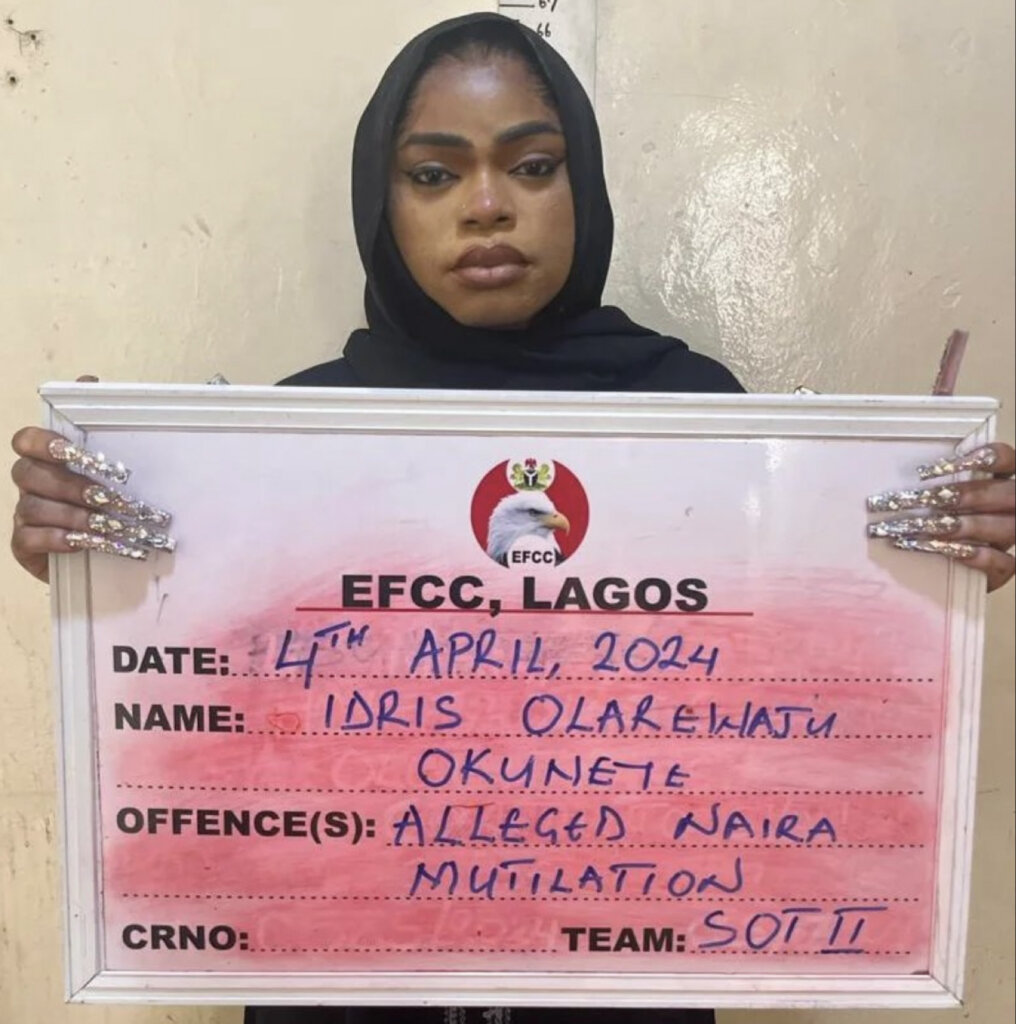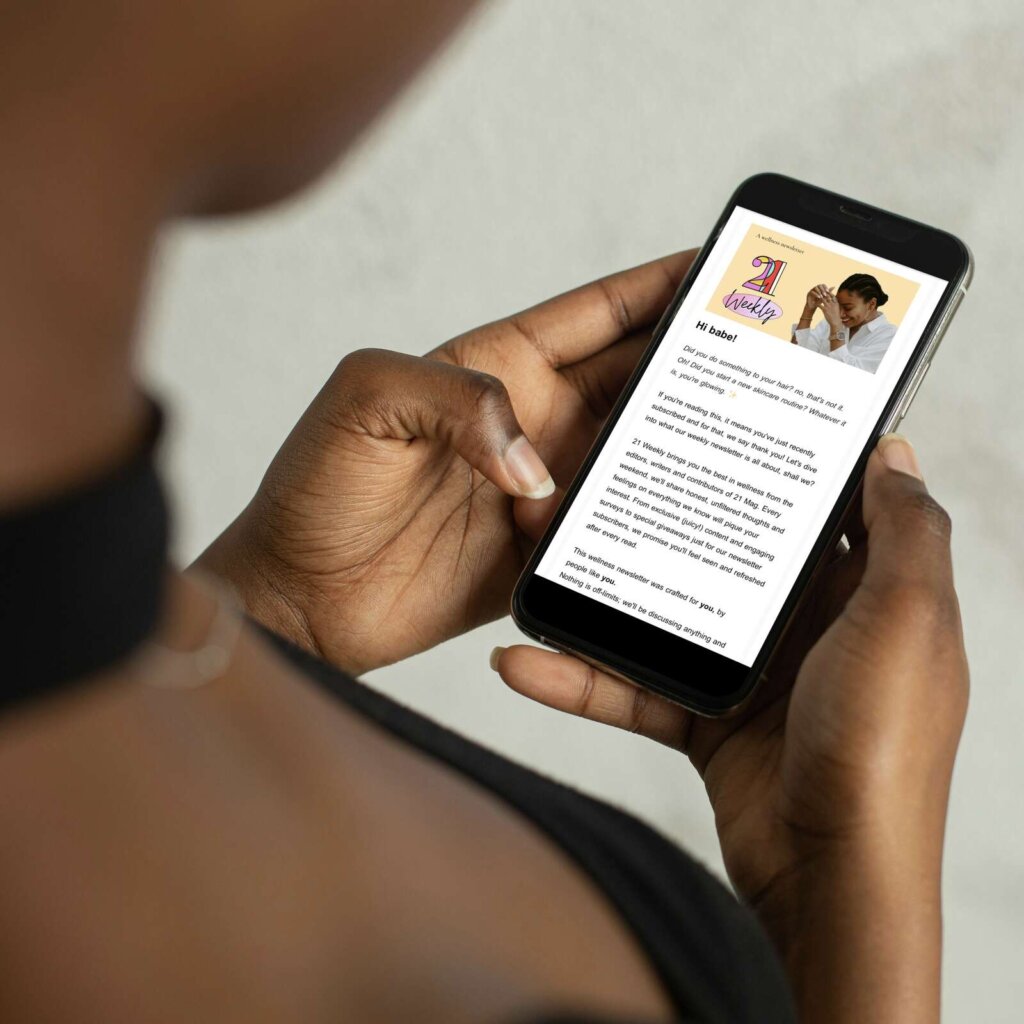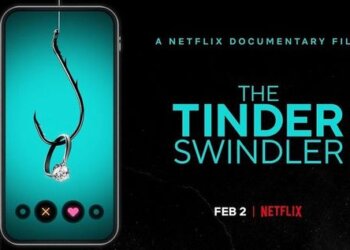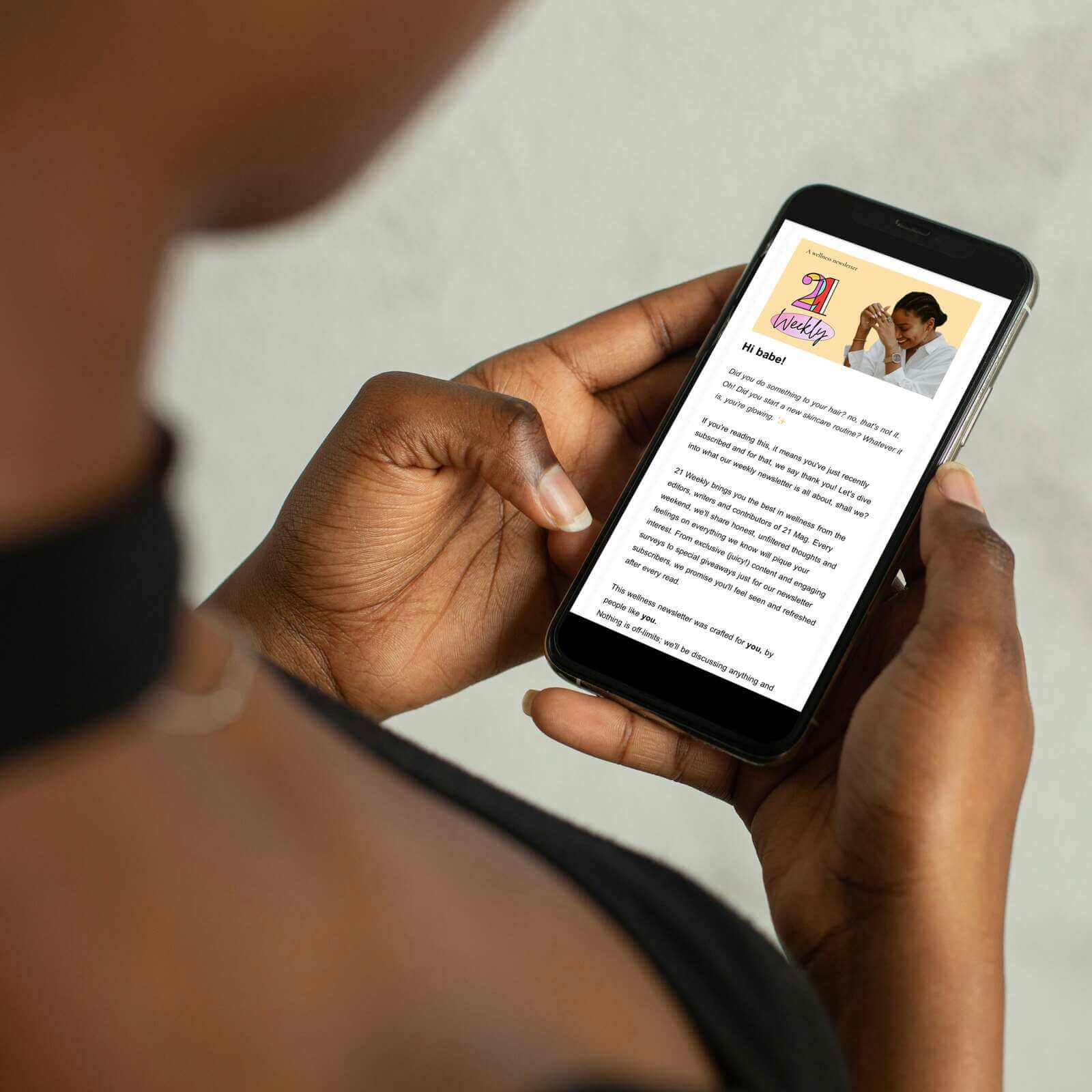No products in the cart.
Why Is Bobrisky Doing Jail Time for Spraying Money?
A Timeline of Bobrisky’s Arrest to Sentencing
On April 3rd, 2024, Idris Okuneye, popularly known as Bobrisky, a Nigerian transwoman and internet sensation, was arrested at her residence in Lagos state and detained under the State Command of the Economic and Financial Crimes Commission (EFCC) at their facility in Lagos state, for allegedly spraying the Naira, currency mutilation and abuse of the Naira, which is contrary to section 21(1) of the Central Bank Act, 2007, which states: “A person who tampers with a coin or note issued by the Bank is guilty of an offence and shall on conviction be liable to imprisonment for a term not less than six months or to a fine not less than N 50,000 or to both such fine and imprisonment.. For the avoidance of doubt, spraying of, dancing or matching on the Naira or any note issued by the Bank during social occasions or otherwise howsoever shall constitute an abuse and defacing of the Naira or such note and shall be punishable under Sub-section (1) of this section.”
Two days later, on April 5th, 2024, Bobrisky was arraigned on a four-count charge bordering on mutilation of the Naira notes to which she pleaded guilty. At her trial, the investigating officer on the prosecution’s side, revealed the specific events that led to Bobrisky’s arrest. He said, “The defendant (Bobrisky) was shown a video,where he was spraying money on an artiste called Segun Johnson. He was also shown a video at IMAX Circle Mall, where he sprayed a total sum of N400,000 at a movie premiere. The defendant was also shown two other videos of him spraying the Naira at Aja junction, Ikorodu, and White Stone Event Centre, Ikeja, Lagos. The defendant admitted to spraying money in these videos. He was, therefore, served with a bail condition.”
It is worthy of note that Bobrisky didn’t meet the bail conditions, so she was detained from the day of her arrest, April 3rd, 2024 to the date of her sentencing.
On the day of Bobrisky’s arraignment, where she pleaded guilty to all the counts against her, she was declared guilty as charged. However, her sentencing was postponed to a later date. At the arraignment, Bobrisky asked the judge to be lenient as she is a first-time offender and she wasn’t aware that spraying money was a crime.
On April 12th, 2024, Justice Abimbola Awogboro of the Federal High Court, sitting in Ikoyi, Lagos, sentenced Bobrisky to six months imprisonment, without the option of fine, for mutilating the Naira notes. Justice Abimbola Awogboro, while sentencing Bobrisky, said the judgment would be a deterrent to others who are found abusing and mutilating the naira.

The Cultural Significance of Publicly Spraying Money in Nigeria
Money spraying, particularly at festivities like weddings, birthday parties, and funerals, is deeply embedded in many Nigerian cultures. It is a symbol of generosity and appreciation of the celebrants of the day. We see it every day, and not just something we watch on the internet: a group of people gathered in celebration of another, music blasting, the celebrant dancing on a designated floor, loved ones rallying around to hype them up, money showering down as they continue to dance, the excitement intensifying. The more the celebrant dances, the more money is being sprayed.
Money spraying is so widely ingrained into the fabric of our society that it’s not just an activity for the rich, but also middle and low-income Nigerians. Some Nigerians view this practice as a flamboyant display of affluence and status, and on the more extreme side, others view it as irresponsible and wasteful, especially in countries ravaged by poverty, like Nigeria. The Central Bank of Nigeria, not taking into consideration a practice that has existed for decades, bringing joy to a lot of Nigerians, outlawed the spraying of money in 2007. However, the enactment of that law did little to mitigate the public spraying of money. Since the law came into force, there have been very few reported cases of prosecution for those who abuse the Naira.
The average Joe, celebrities, government officials and politicians still freely participate in money spraying. In 2021, a viral video of lawmaker Mr. Ibrahim Abunna, throwing bundles of money at a large group of people believed to be his constituents in Borno State surfaced. There were over 100 recipients of various ages and genders, trying to grab as much money as they could, despite the risk of a stampede.
That same year, Obi Cubana, club owner and socialite, threw a lavish funeral for his mother. At the celebration, videos of attendees spraying an insane amount of Naira notes resurfaced.
In the first quarter of 2024, Dike Osinachi, a Nollywood comic actor and content creator popularly known as Apam, at his sister’s wedding, was captured on video throwing large sums of money into the air, which quickly went viral on social media.
Funny enough, despite the many instances of contravening Section 21 (1) of the CBN Act 2007 by prominent male figures, this year so far, it has only been women who have been convicted for the crime. On February 1, 2024, Nollywood actress, Oluwadarsimi Omoseyin was convicted and sentenced to six months imprisonment for spraying and stepping on the new Naira notes at a social event in Lagos. While Oluwadarasimi’s trial took about one year from the date of arraignment to the date of sentencing, Bobrisky’s took about ten days. While Oluwadarasimi initially pleaded not guilty to the charges against her, she later entered a plea of guilt because the evidence against her was overwhelming. She was sentenced to six months imprisonment with an option to pay a fine, Bobrisky on the other hand who pleaded guilty right from arraignment, was not given the possibility to pay a fine.
Why is Bobrisky Being Made a Scape Goat?
Nigeria has a frightening homophobia problem, and sadly for Bob, she’s an openly trans woman living in Nigeria. In 2013, the Same-Sex Marriage (Prohibition) Act was enacted to criminalize marriage between homosexual couples, with a jail term of 14 years. While the Act also bans any public display of same-sex amorous relationships, it is silent on what happens if a person publicly identifies (without the disclosure of a same-sex sexual or romantic partner) that they are a homosexual. Technically speaking, coming out to identify as queer isn’t a crime, and for a long time, this is all Bobrisky has been doing on her social media pages. Yes, this transgender internet sensation has been vocal about having boyfriends, but not once has she ever shown the general public any of these boyfriends, talk more of engaging in public display of affection with any of them, for all to see.
Bobrisky’s ostentatious display of her life as a rich trans woman has obviously made a lot of powerful and homophobic people at the top very angry. However, she hasn’t been caught contravening the provisions of the shameful Same Sex Marriage (Prohibition) Act 2013 (SSMPA). Her recent sentencing is only a smokescreen to punish her “gayness”. Let’s call it what it is, Bobrisky’s arrest and sentencing is a witch hunt for being queer. Honestly, it’s even surprising that she has existed in Nigeria for as long as she did without such malicious prosecution.
To the people gloating at her misfortune, the gag is, none of us are equal until all of us are equal. Today it is Bobrisky, tomorrow it may be you. She’s being scapegoated and mocked because many Nigerians fail to recognize her full humanity as a trans woman. Many Nigerians are convinced that she deserves punishment for being “ a man that is behaving like a woman”. And while some may argue that it has nothing to do with her sexuality, answer these questions: What circumstances in Bobrisky’s case didn’t allow her to make bail, when every day we see people who have committed far worse crimes and they made bail? What circumstances in Bobrisky’s case led to such a severe sentence for a first-time offender who pleaded guilty?
What Next?
At Bobrisky’s sentencing, she was asked by the judge whether she is a man or a woman, and she identified as a man. Her response is smart. In the Nigerian Judiciary, you are either male (assigned male at birth) or female (assigned female at birth). Bobrisky, identifying as a trans woman in court, would have landed her in a hotter soup than she’s already in. Any other response, and she would have immediately been clamped down with homosexuality charges emanating from the SSMPA 2013.
Now, as an effeminate person, she will be forced to spend 6-months of jail time locked in a prison with men. Bob has also been vocal about undergoing gender-affirming surgery. It isn’t far-fetched to assume that if she has/ is undergoing that kind of surgery, she may also be on feminizing hormone therapy. Will she be given the chance to take her medications? If she isn’t, her health will be endangered. I can’t even imagine what is to come.
Beyond the injustice inflicted upon Bobrisky, her malicious persecution relays a chilling reminder to the Nigerian LGBTQ+ community in the country that their fundamental human rights and freedoms are not guaranteed at all. In Nigeria, where societal attitudes towards non-conforming gender identities and sexual orientations often range from hostile to outright discriminatory, cases like Bobrisky’s perpetuate a culture of fear and marginalization. . It serves as a stark reminder of the systemic barriers that obstruct the path to equality and justice for individuals who do not conform to traditional gender norms.
In Conclusion
Nigeria is so puzzling and will leave you pondering upon too many things. Here are some crucial ones: why are taxpayers’ money being used to maliciously prosecute Bobrisky for spraying money when, Austa’s killers are yet to be found, when rehab programs for captured Boko Haram members exist, when the elevator that killed a young doctor at a General Hospital in Lagos has still not been fixed? Nigeria and misplaced priorities go hand in hand.
The rule of law in Nigeria is on vibes. Laws are selectively used by the powers that may be, not to create a peaceful, orderly and working Nigeria, but to bully civilians. The civil liberties and human rights of the average citizen are barely respected. For Nigerians in marginalized groups and vulnerable communities, like women, queer people and low-income people, things are worse. Look at Bobrisky, with all her wealth and network and yet, the system somehow looked for a loop hole, and swallowed her up. What will happen to those of us who do not even have a fraction of her power?
It is crucial that we all amplify our voices for the change of regressive ideas and laws as well as stand in solidarity with the vulnerable in society. Only through collective action and unwavering commitment to human rights can we strive towards a society where every individual, regardless of their gender identity or sexual orientation, can live free from persecution and discrimination.















